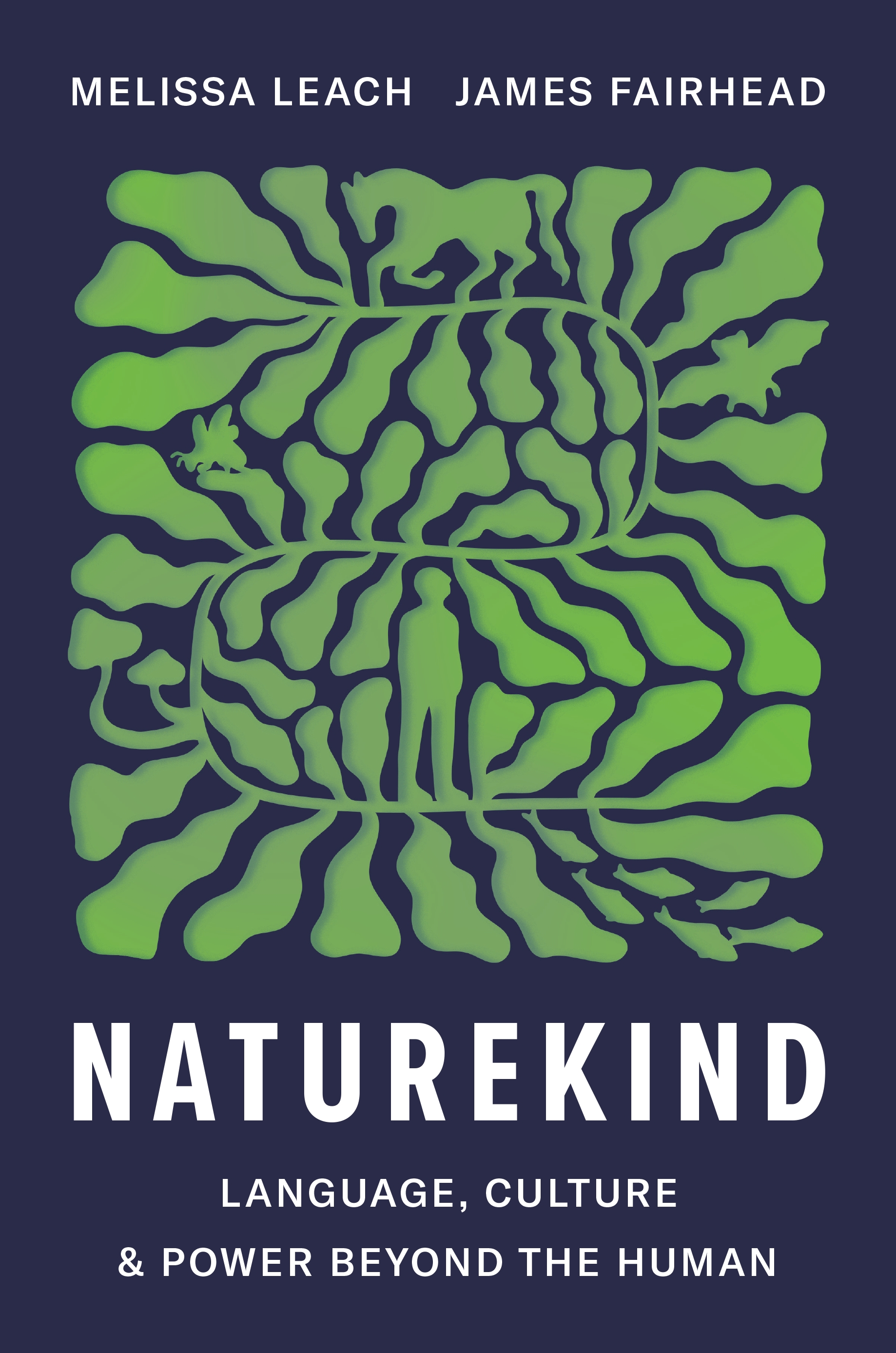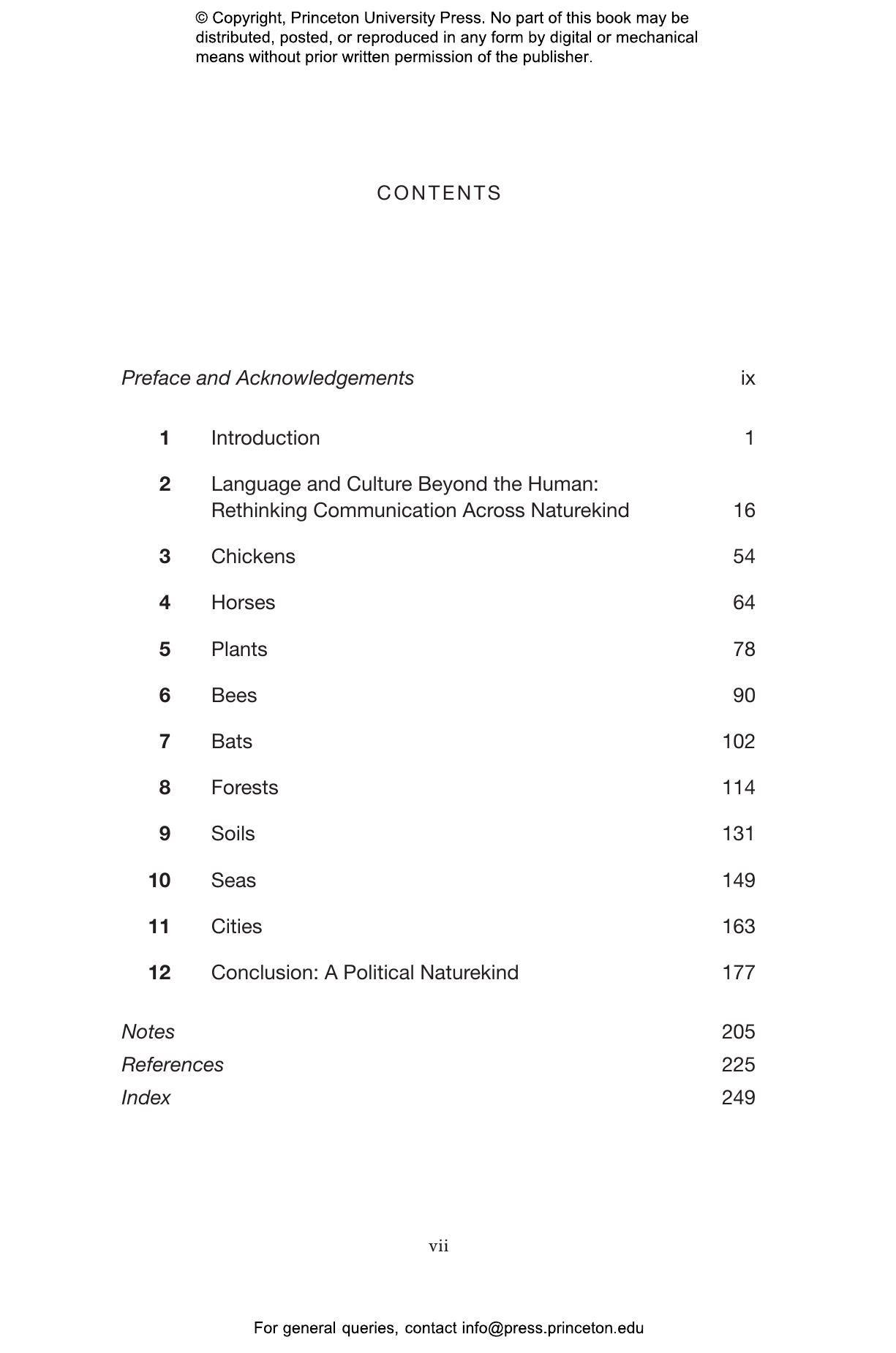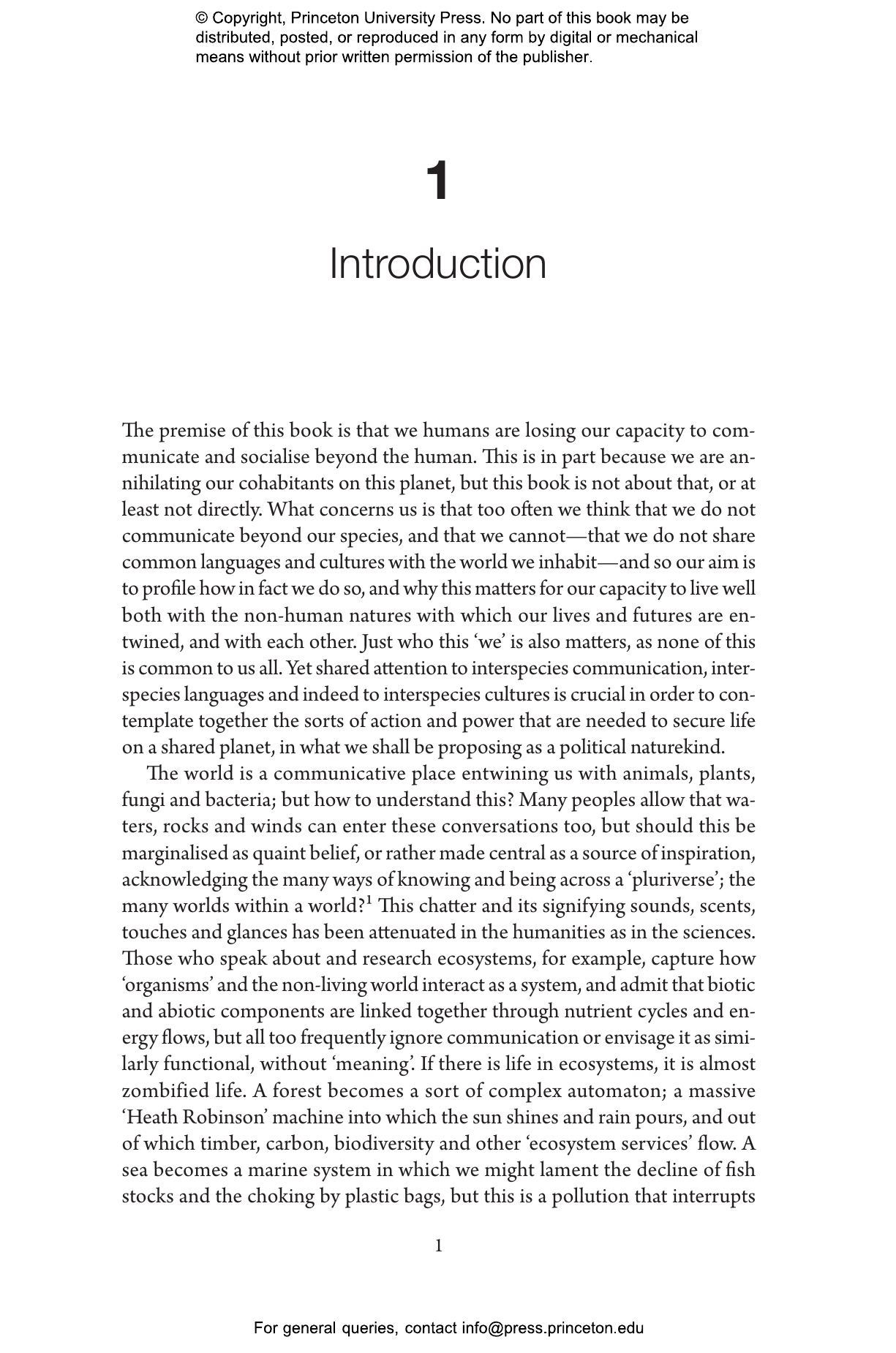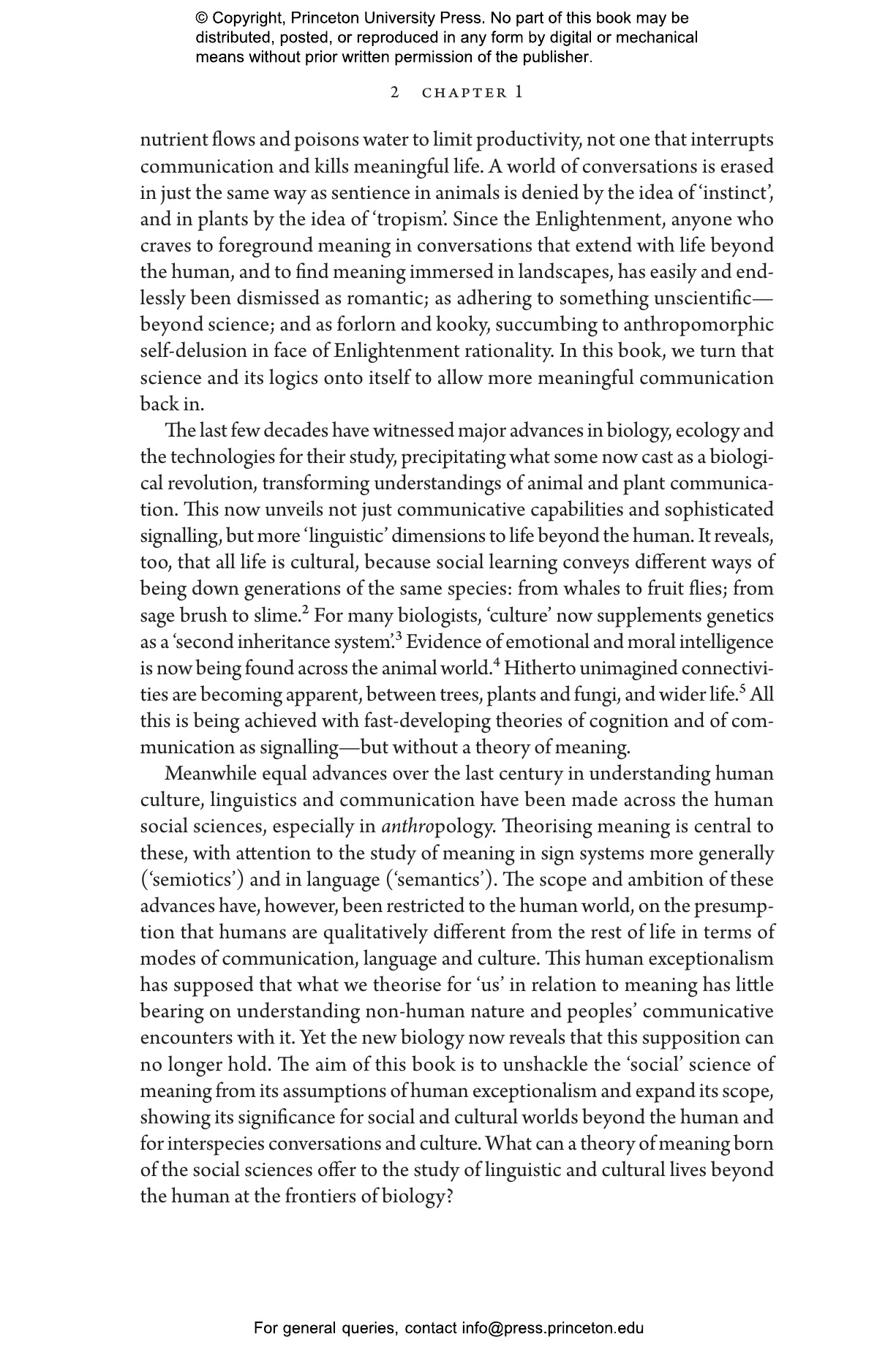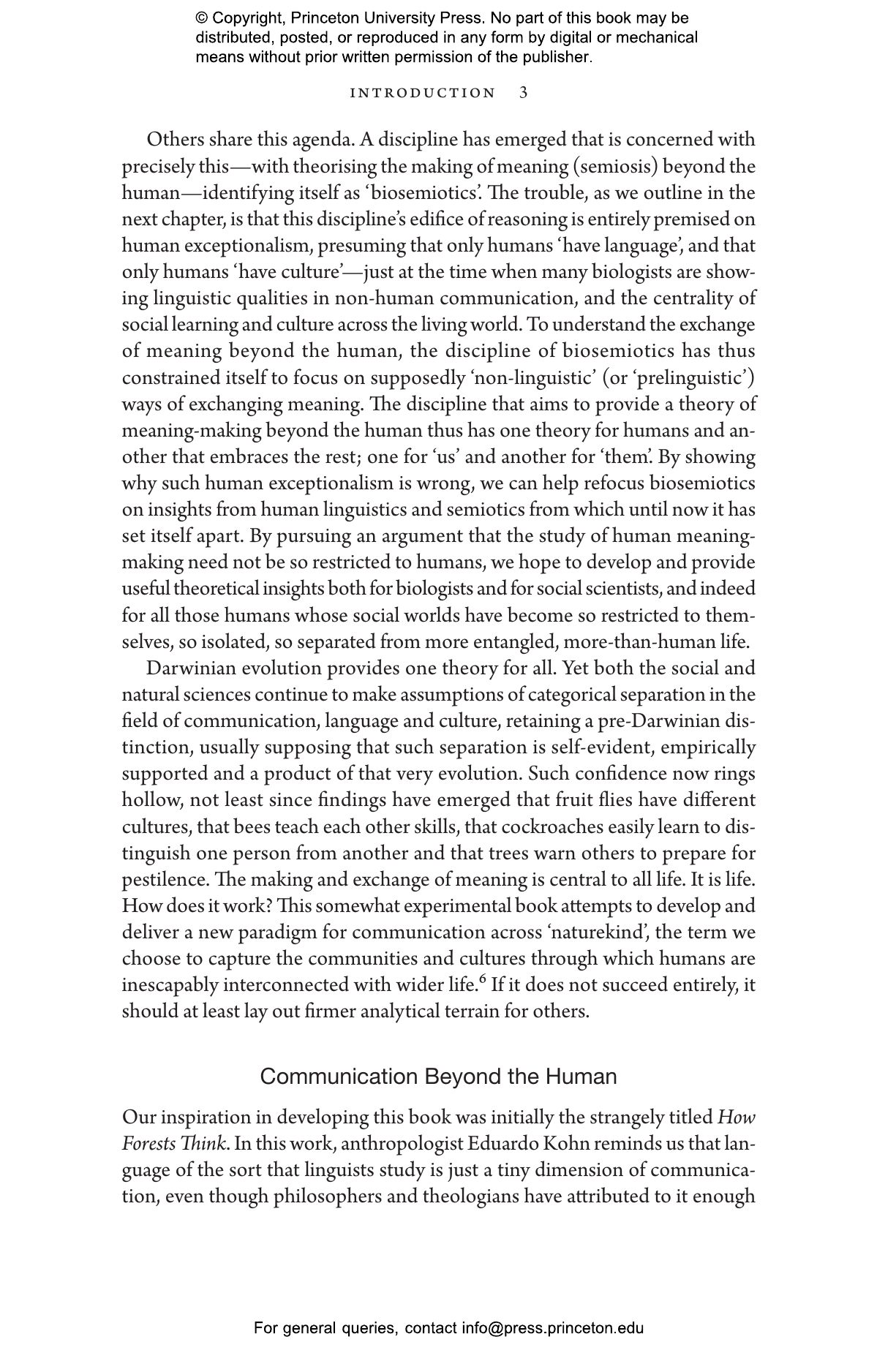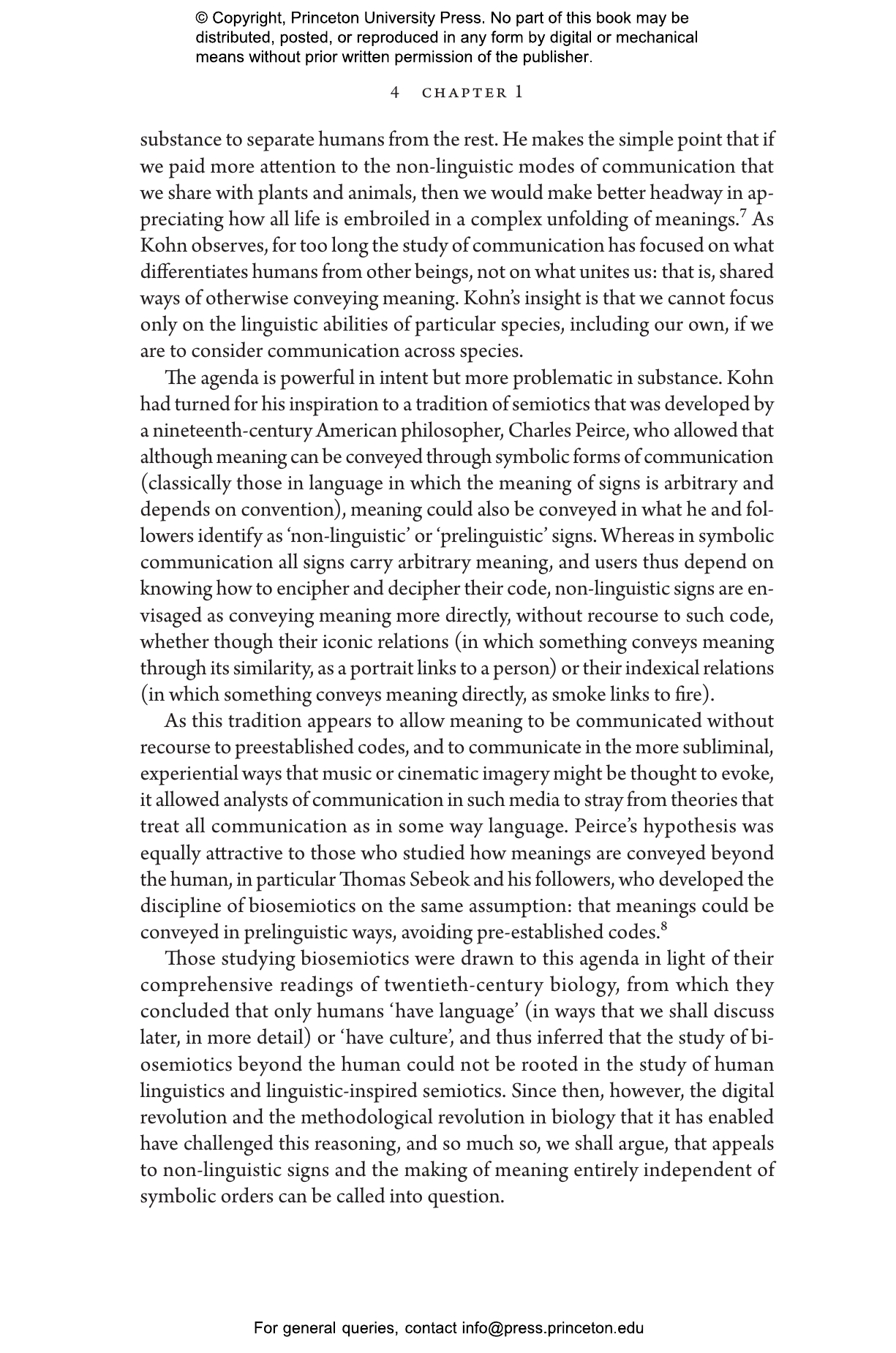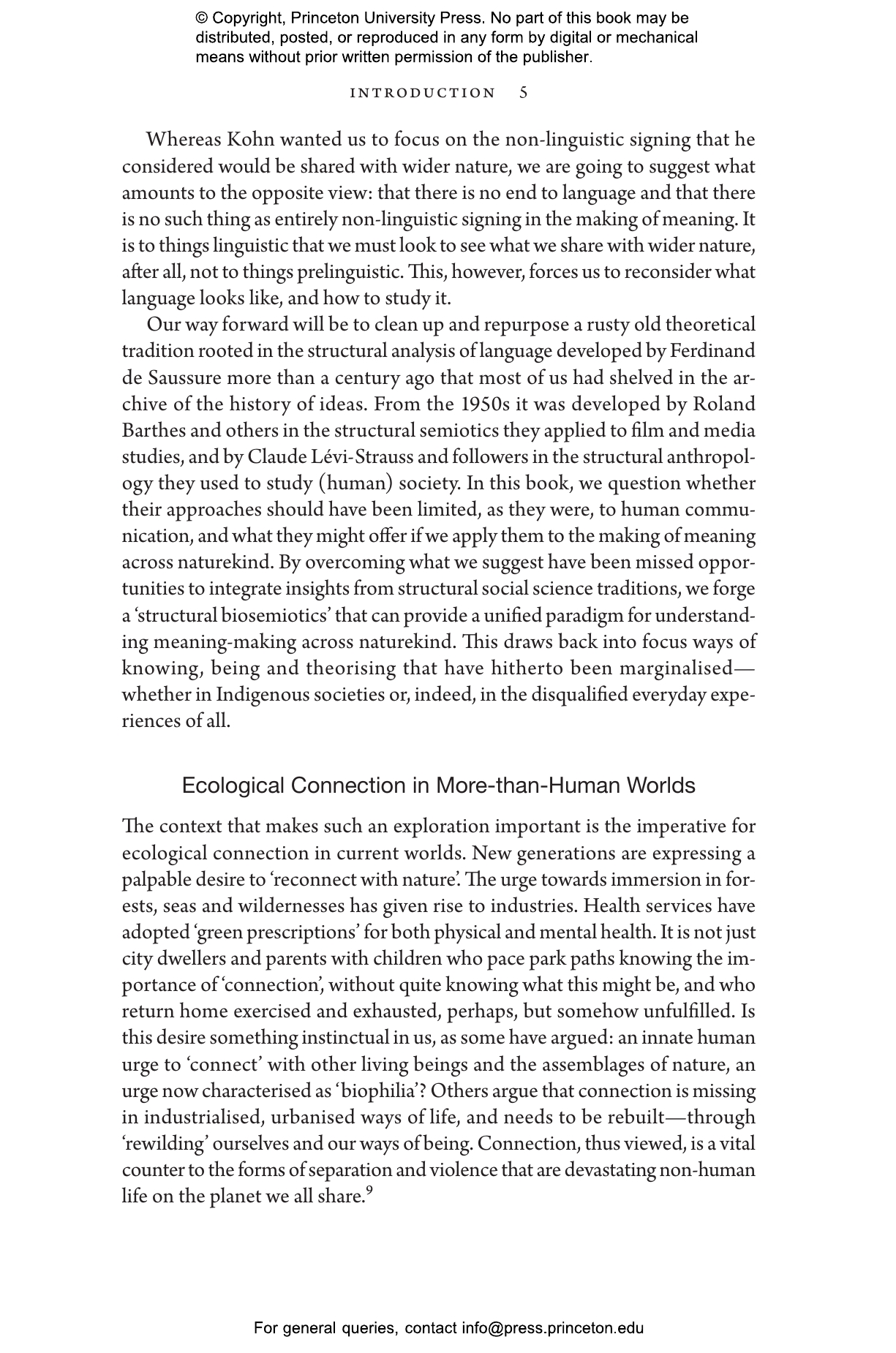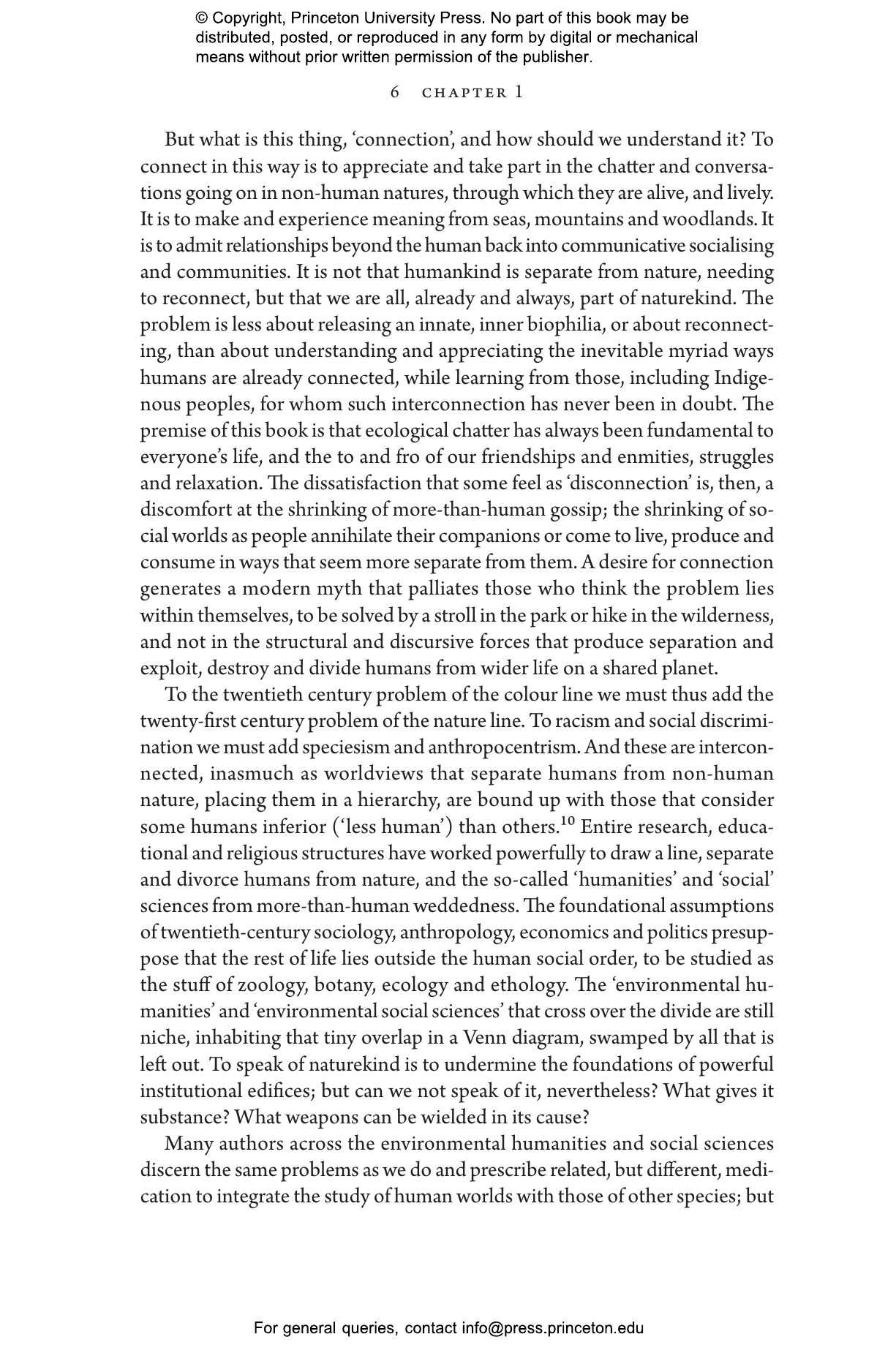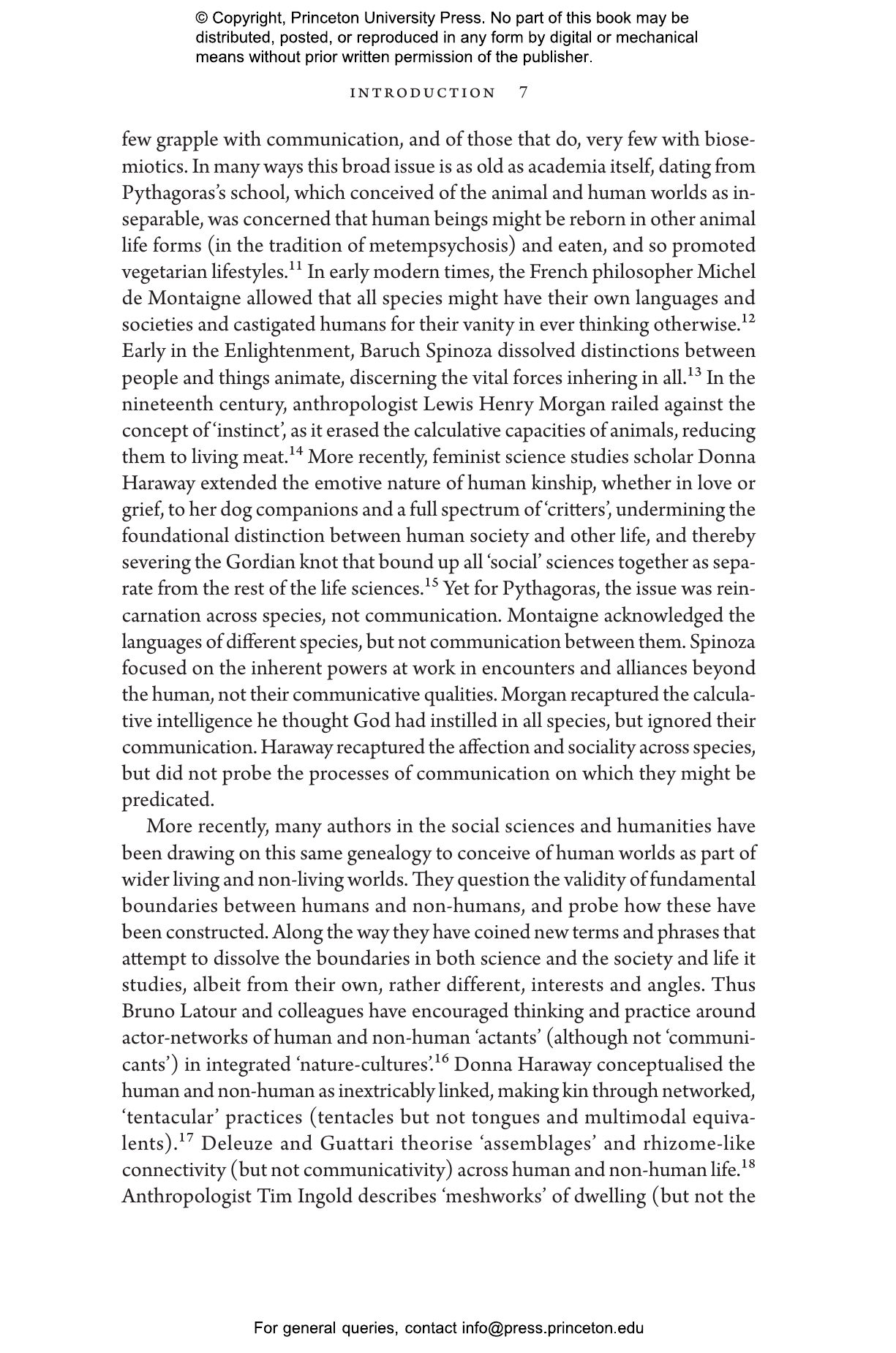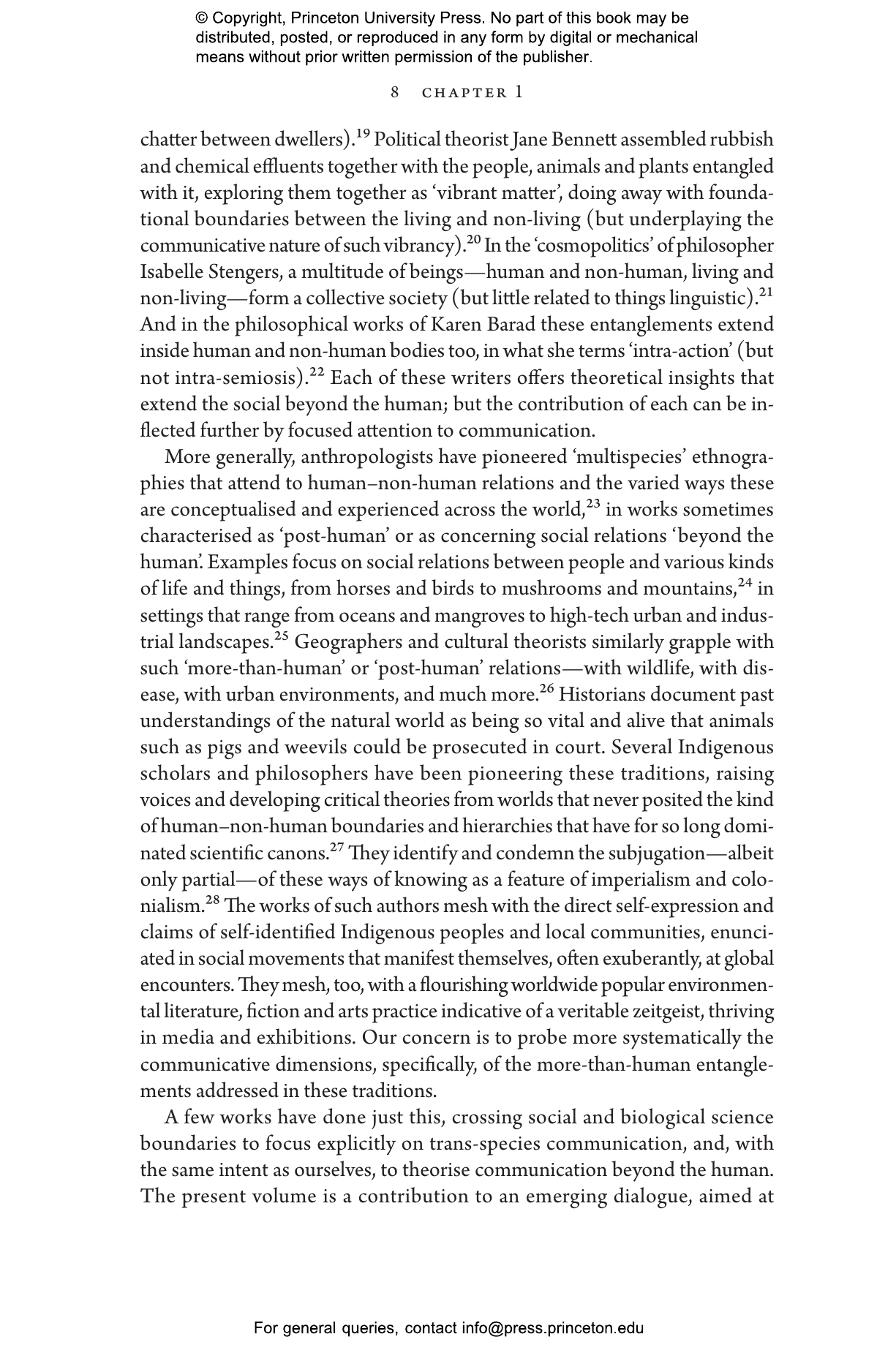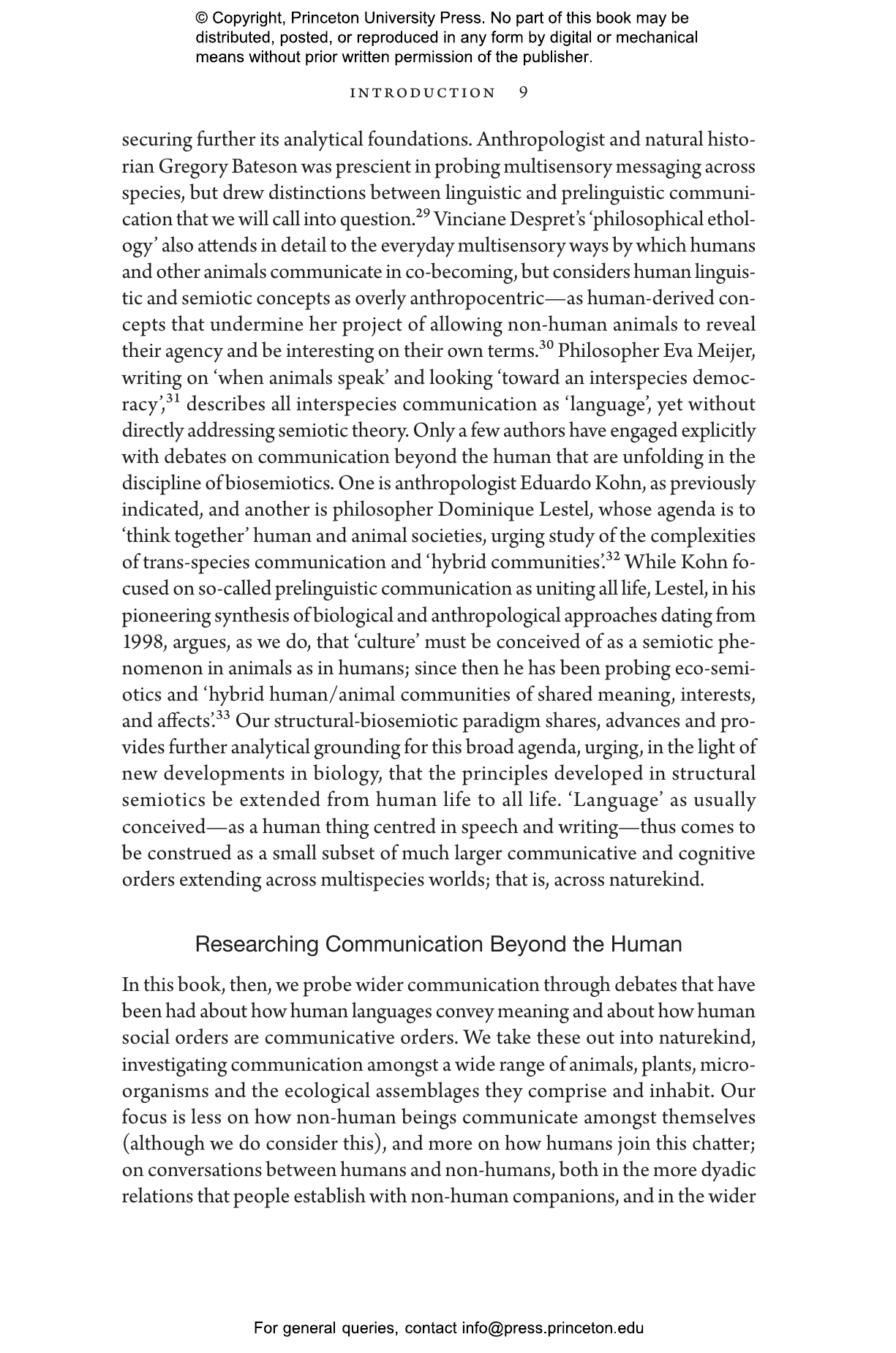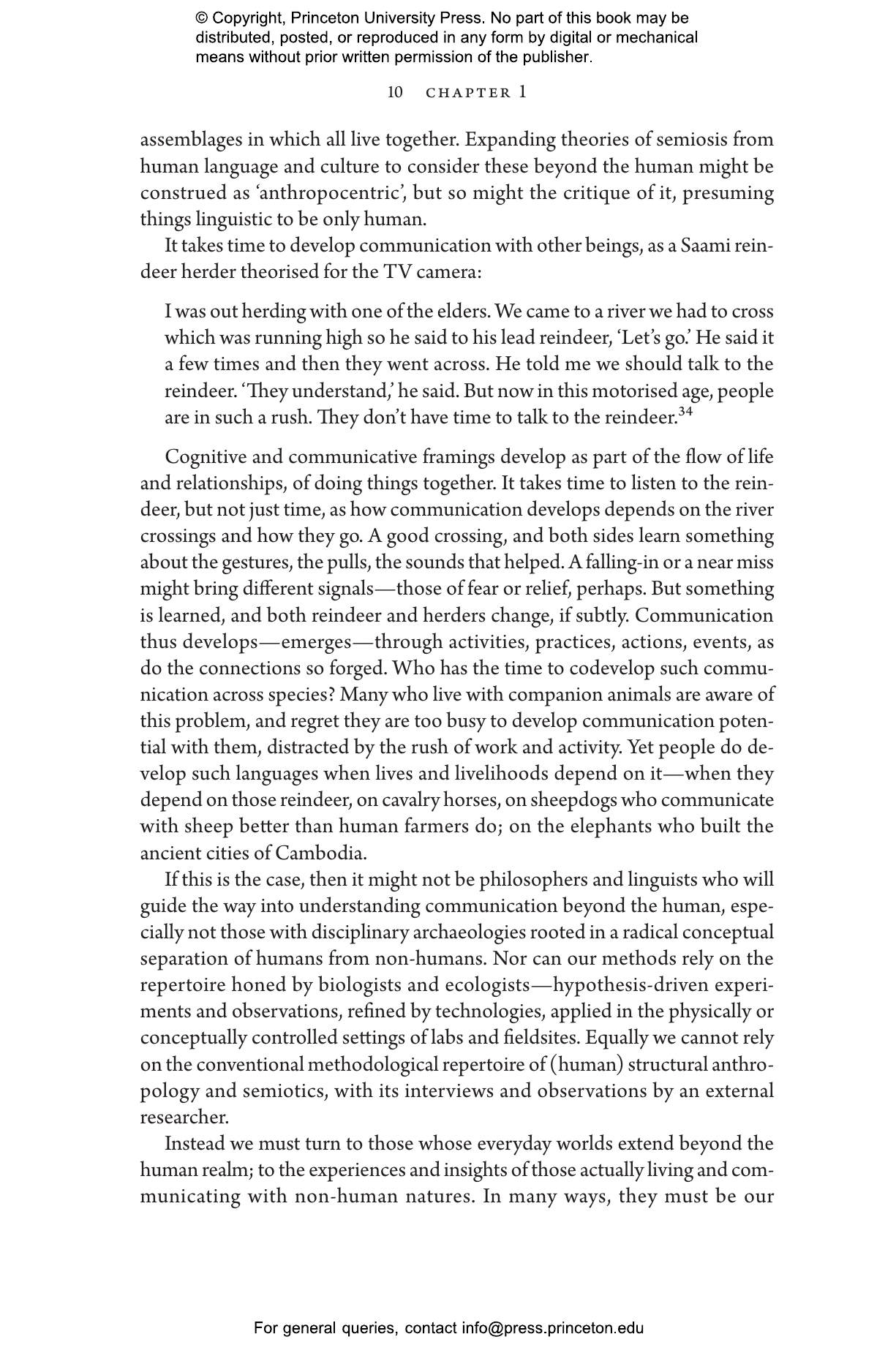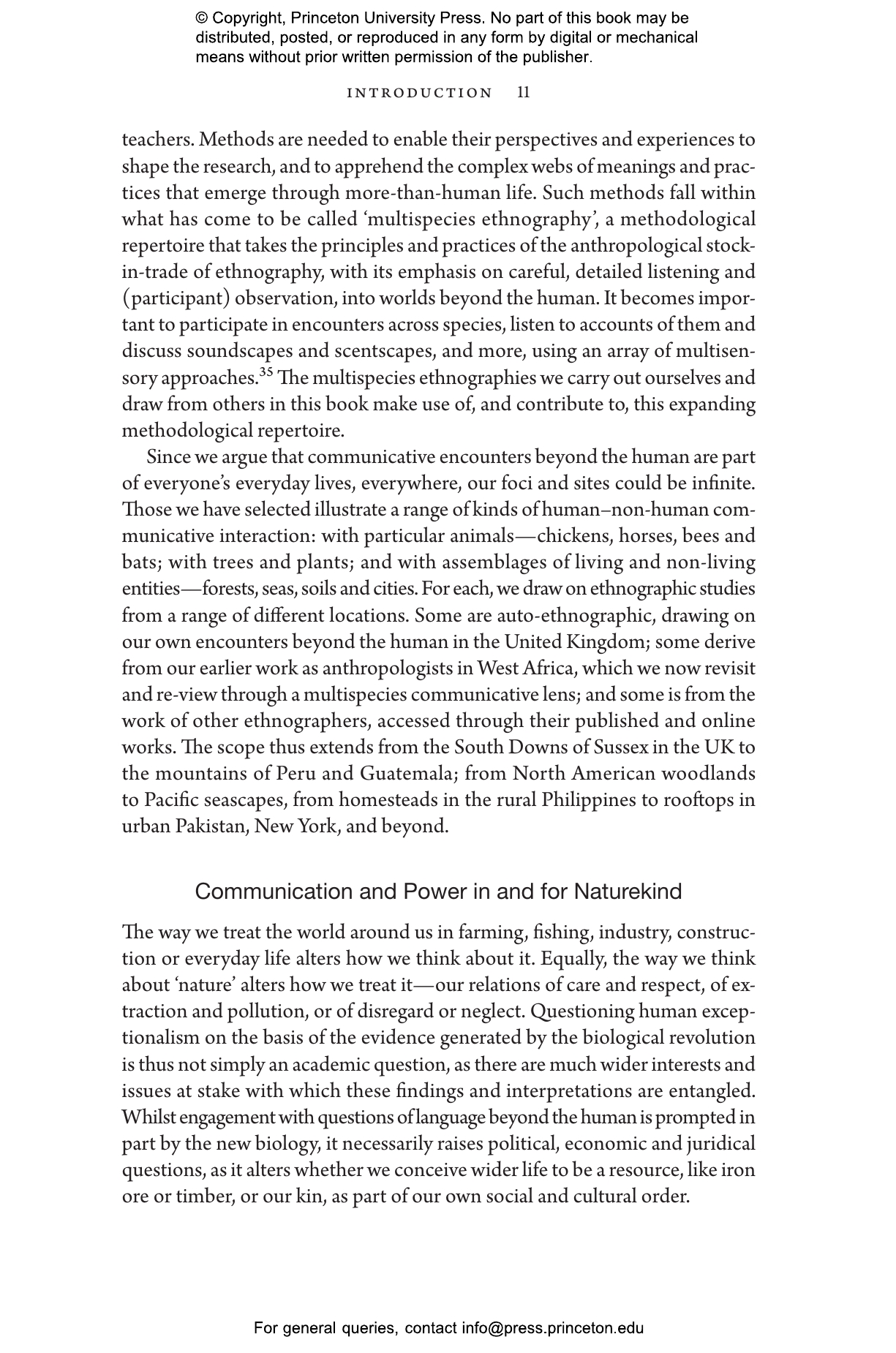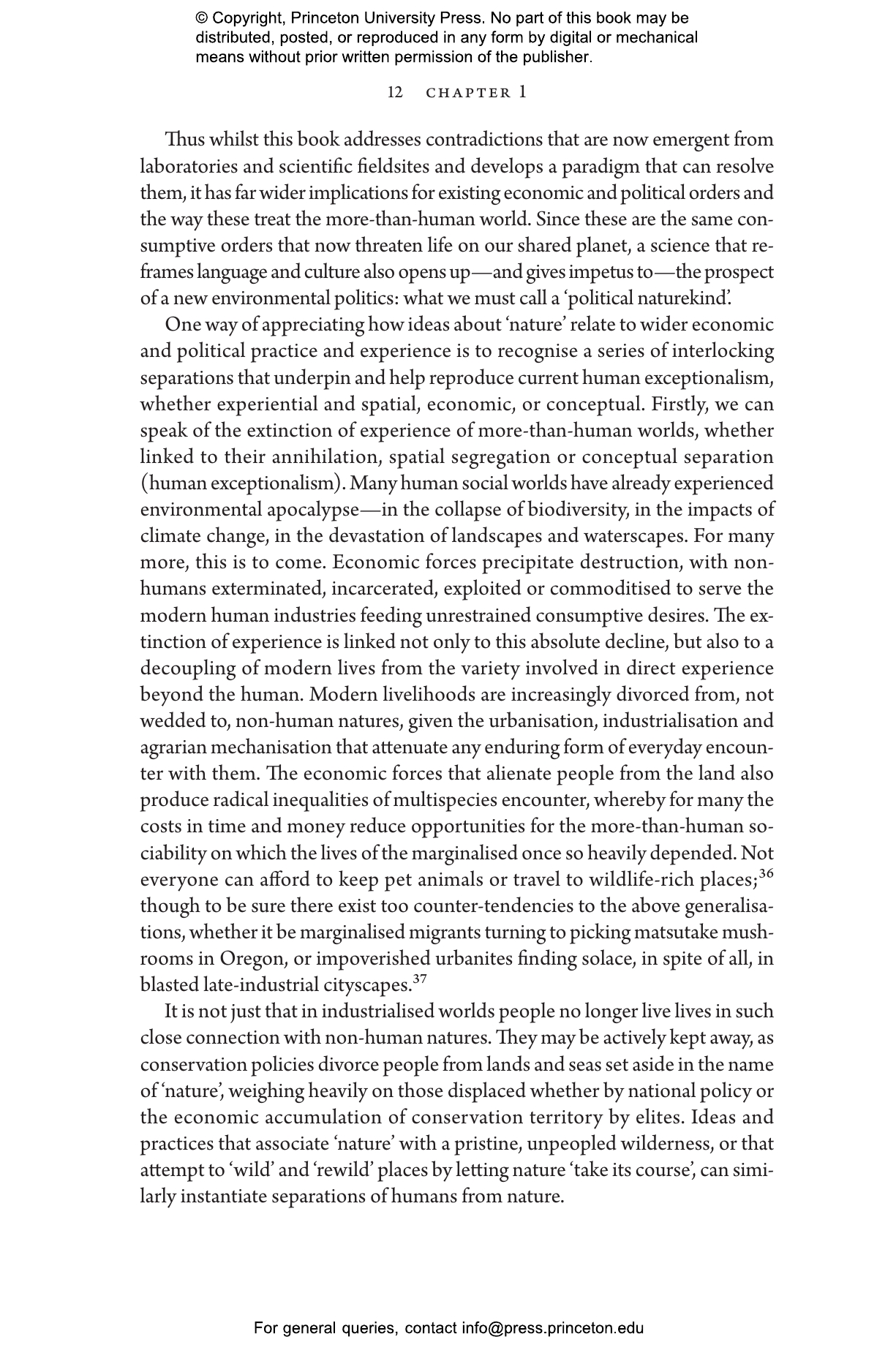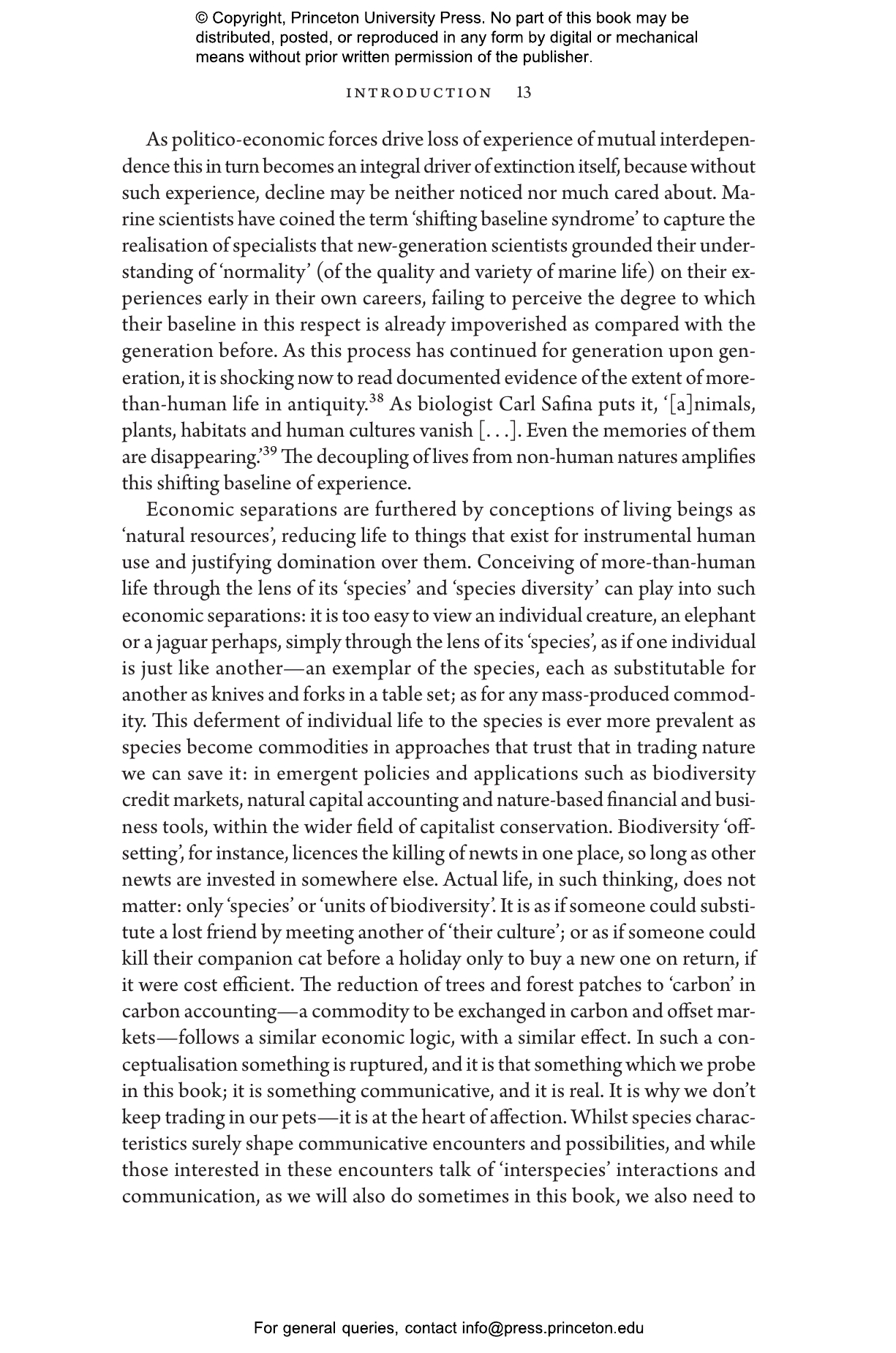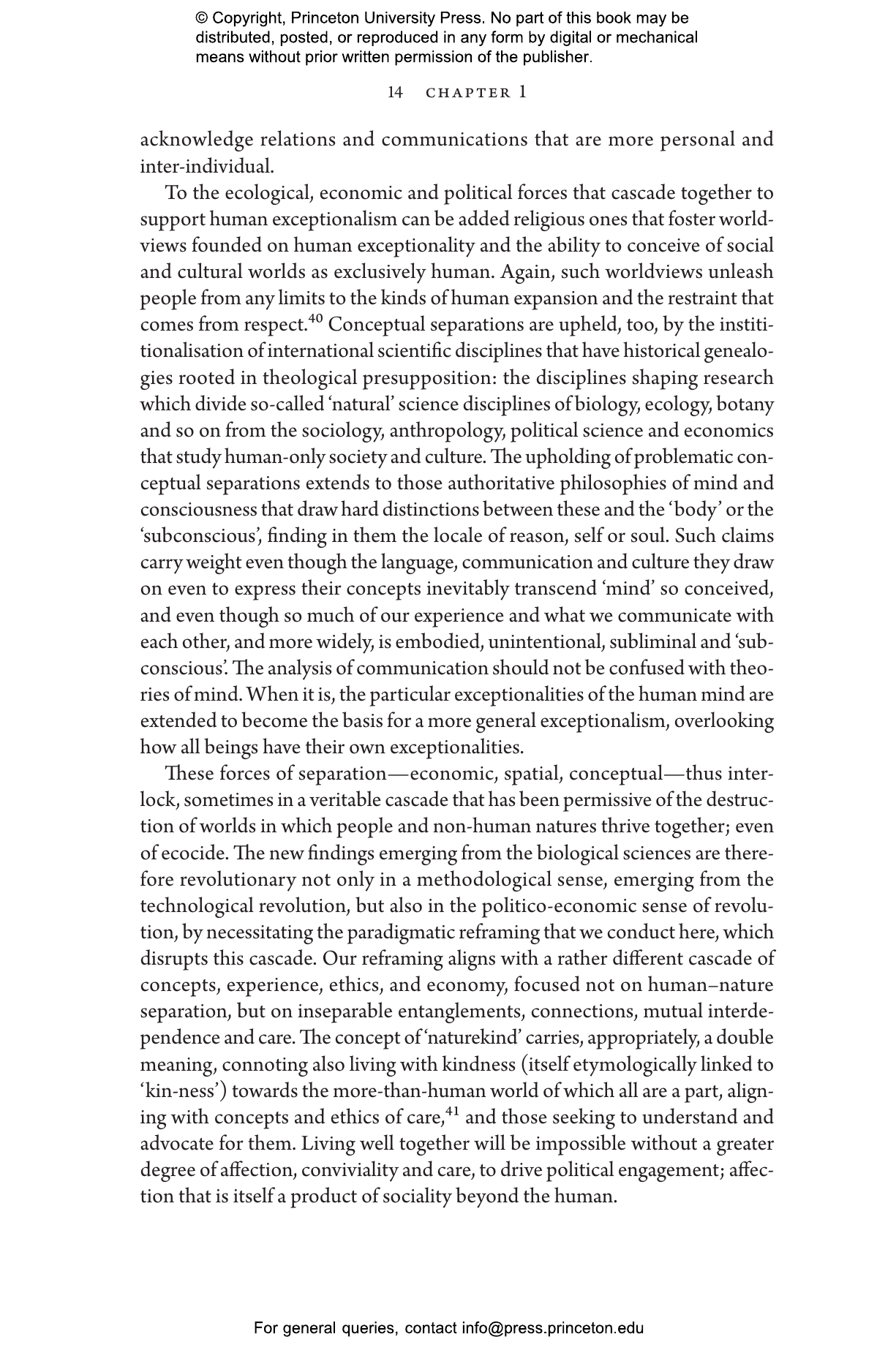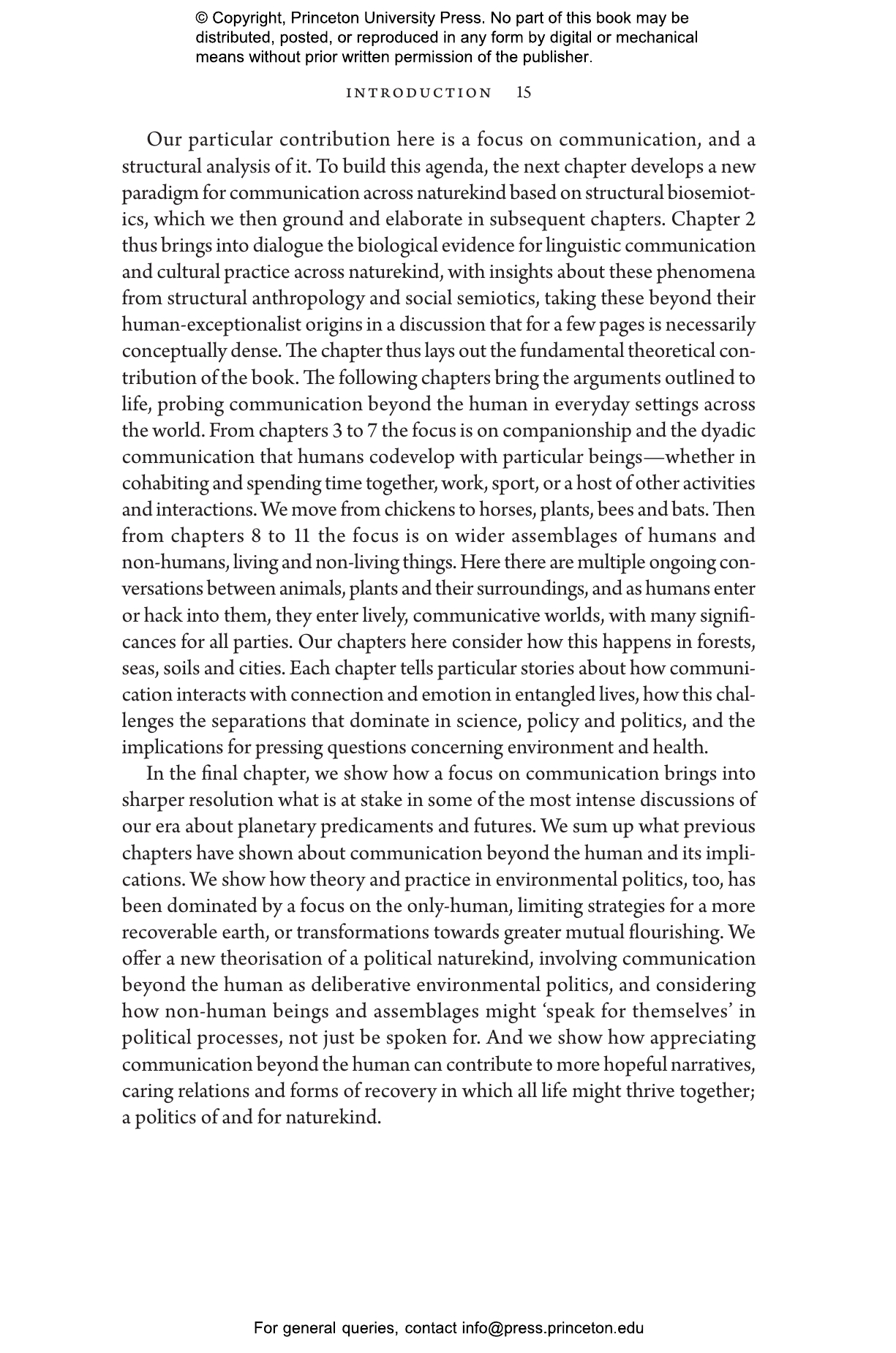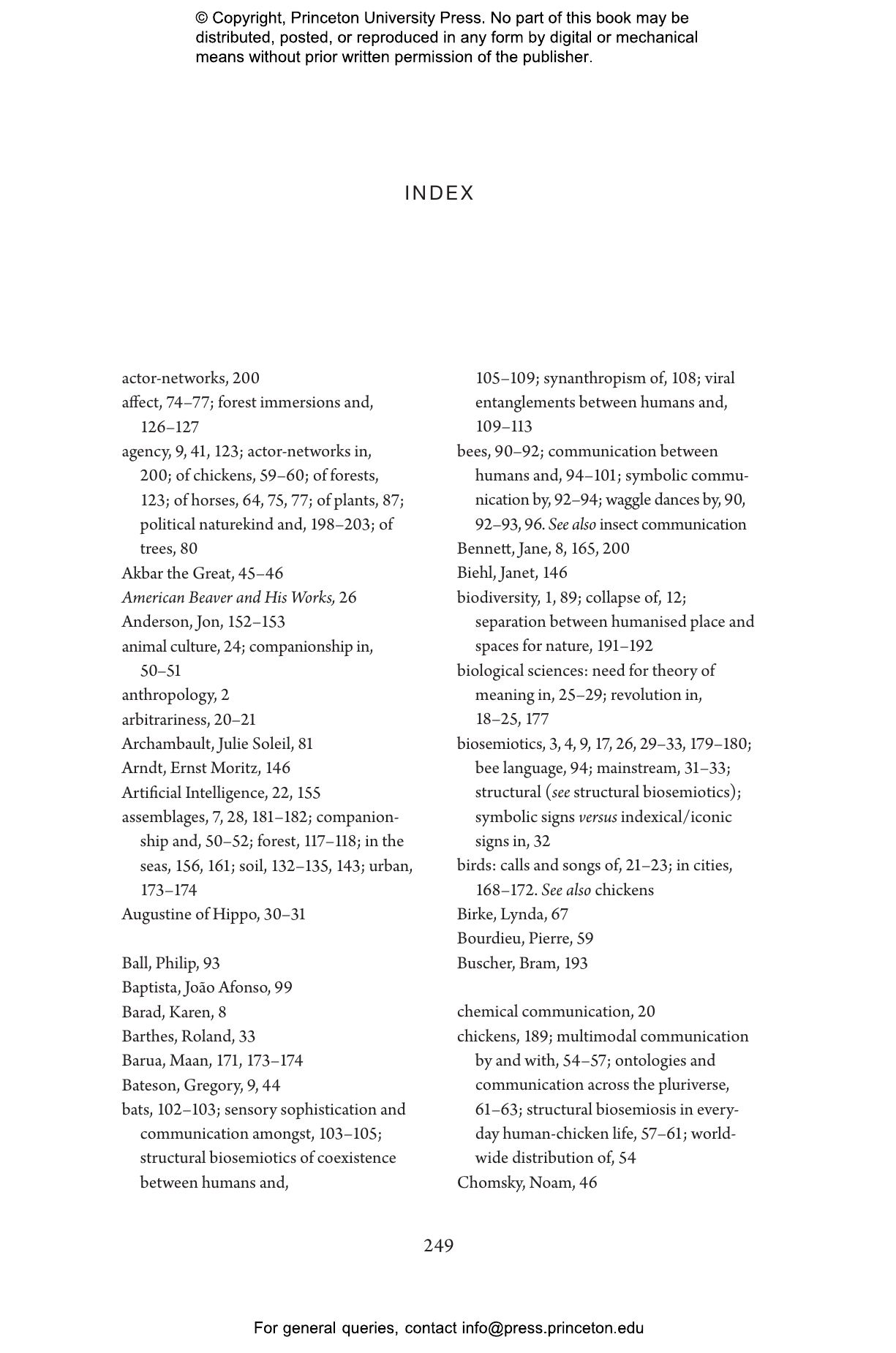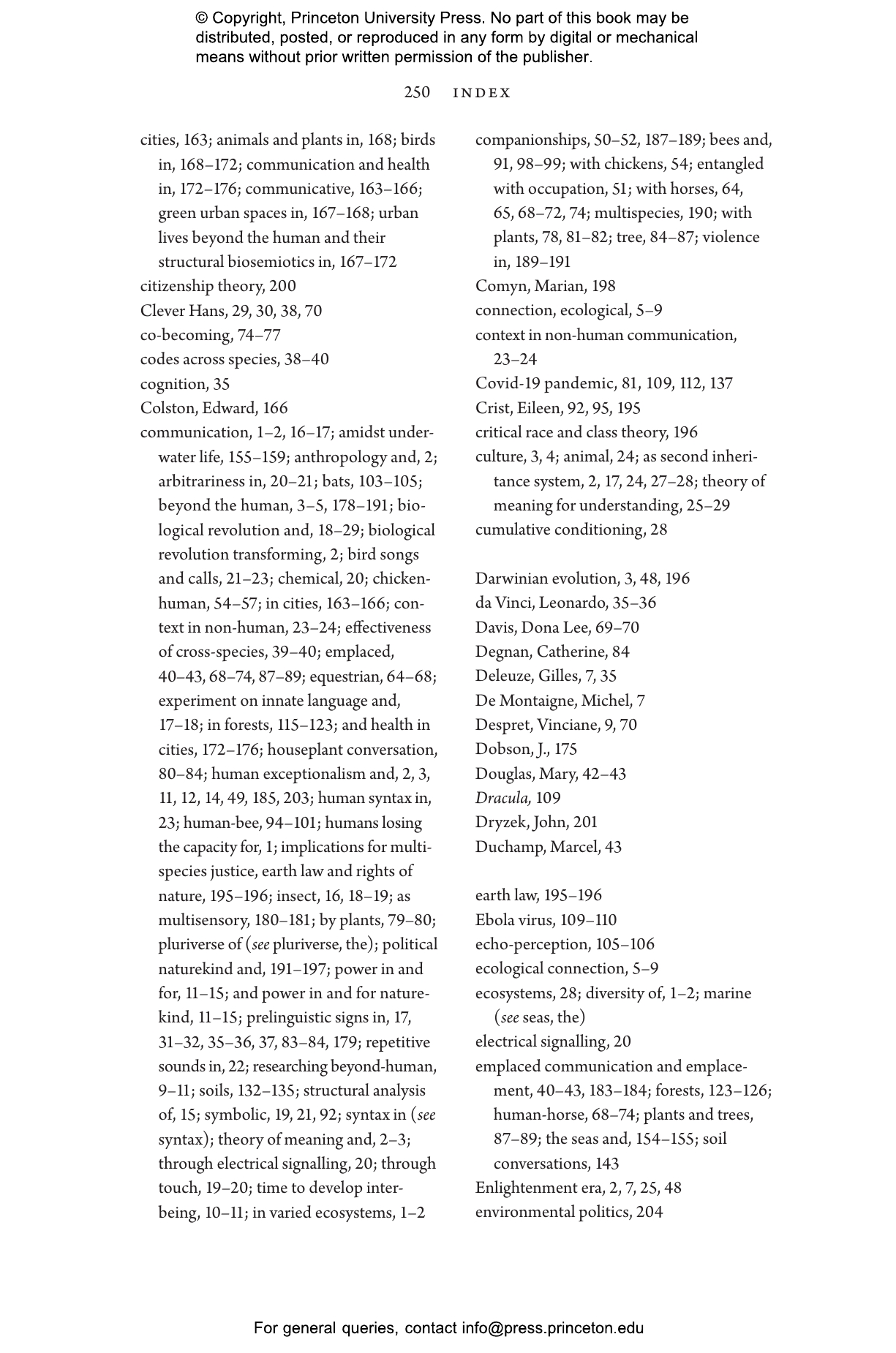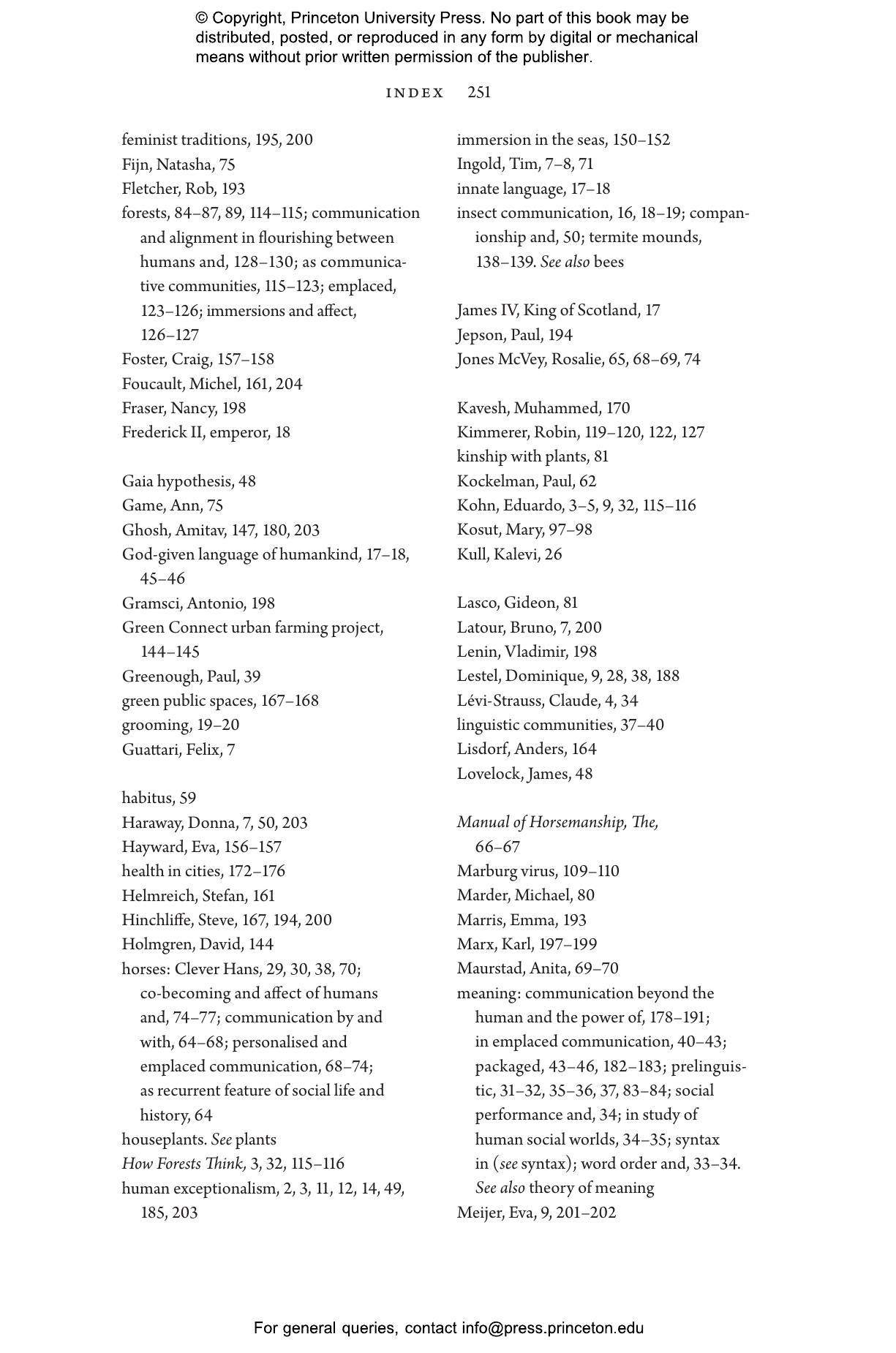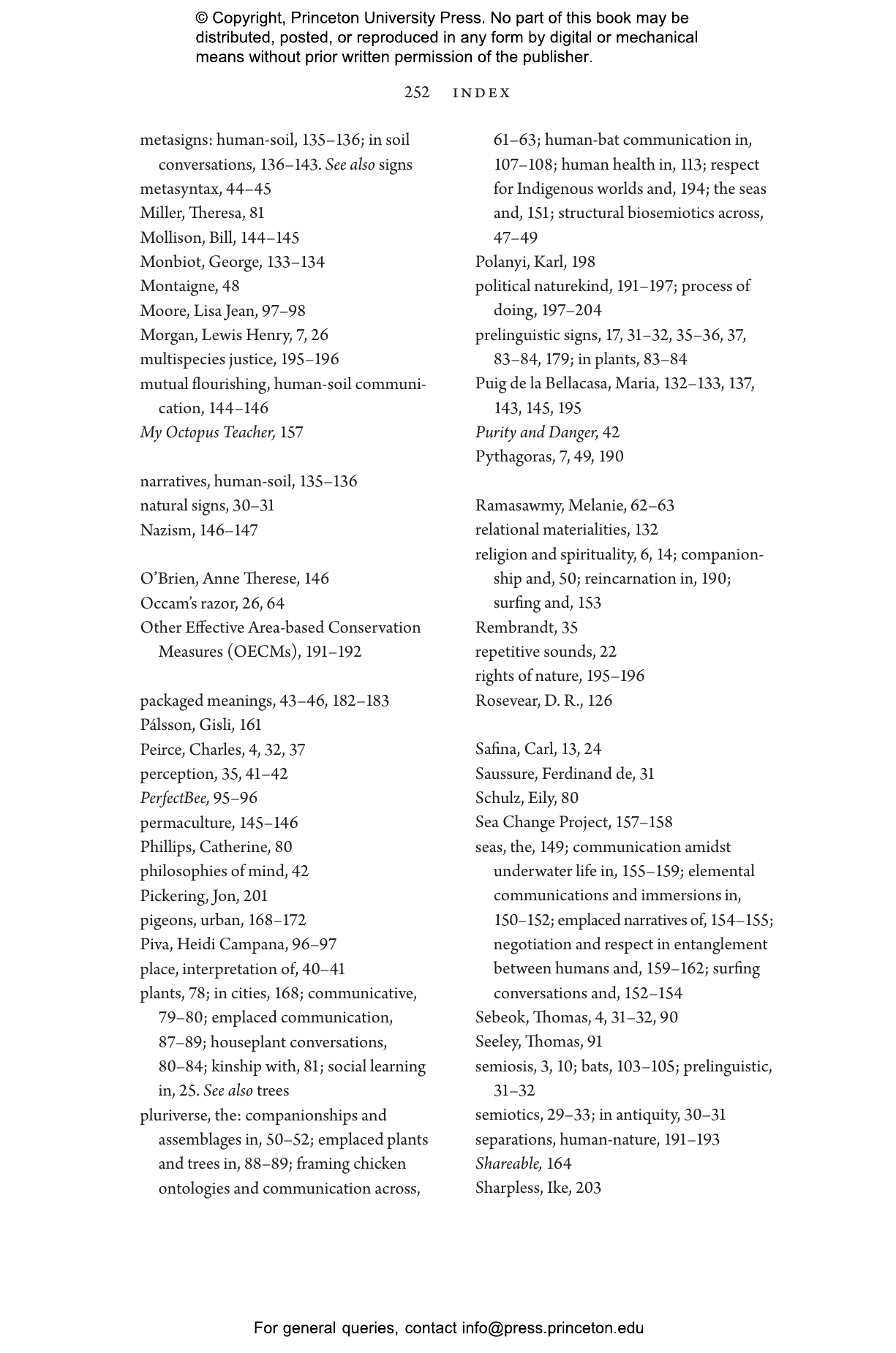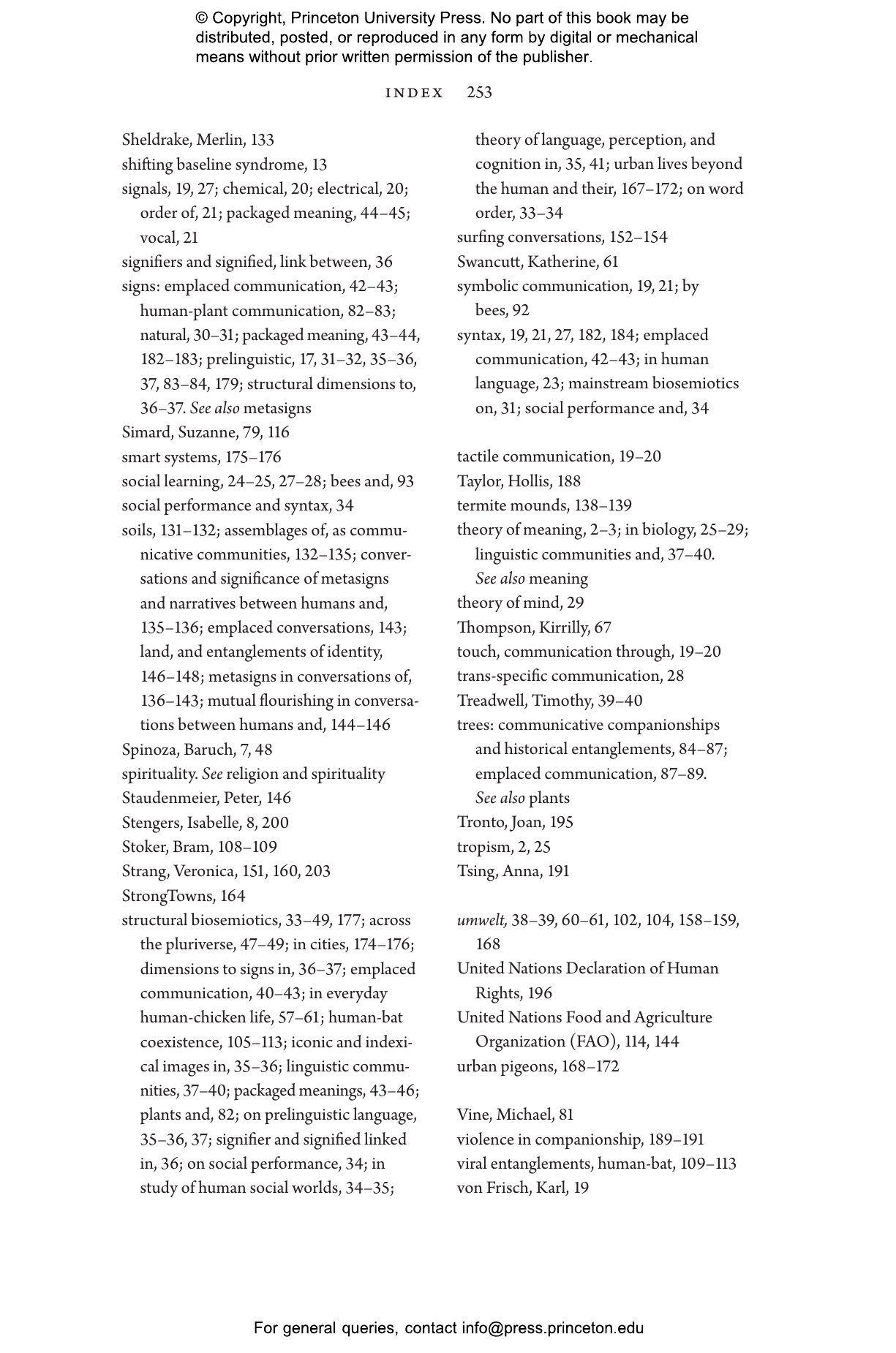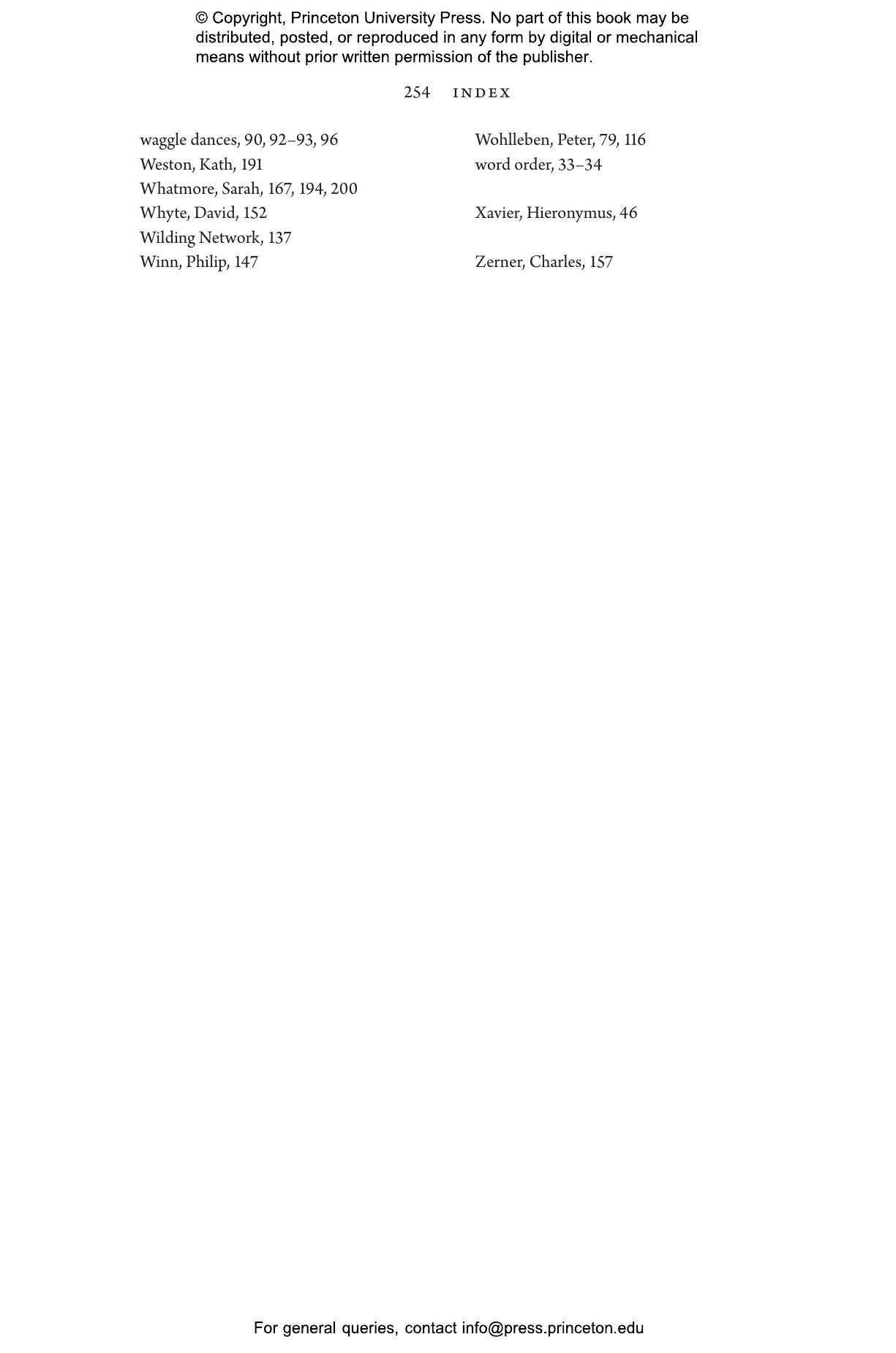Are language and culture uniquely human, justifying an exceptionalism that sets people apart from the rest of nature? New discoveries in the biological sciences have challenged this assumption, finding syntax, symbolism and social learning beyond the human, and identifying culture as a second inheritance system across the phyla from whales to insects and plants. Biologists are constrained, however, by the mechanistic ways communication is understood. In Naturekind, Melissa Leach and James Fairhead address this impasse by extending insights from structural linguistics, social semiotics, anthropology and Indigenous theorization into wider life, integrating them with new biological findings to develop a new structural biosemiotics paradigm.
Leach and Fairhead argue that such a paradigm can provide a unified theory of meaning-making across all of nature, or ÔÇťnaturekind,ÔÇŁ allowing new theorisation about human and nonhuman communication and culture. They examine peopleÔÇÖs communicative encounters with chickens, horses, bees, bats and plants, and with assemblages of living and nonliving entitiesÔÇöforests, seas, soils and cities. Marrying the new biology with the structural social sciences, they contend, provides powerful insights for living well with wider life on a shared planet and transforming political relations.
Melissa Leach is professor of social anthropology at the University of Cambridge and Executive Director of the Cambridge Conservation Initiative (CCI). James Fairhead is professor of social anthropology at the University of Sussex. Leach and Fairhead are the coauthors of Misreading the African Landscape: Society and Ecology in a Forest-Savanna Mosaic; Reframing Deforestation: Global Analyses and Local Realities—Studies in West Africa; Science, Society and Power: Environmental Knowledge and Policy in West Africa and the Caribbean; Vaccine Anxieties: Global Science, Child Health and Society; and other single-authored books.
“The authors’ main arguments are innovative, at times provocative and even revolutionary. Naturekind represents an impressive synthesis of the literature and some thought-provoking novel elements.”—Sandra Diaz, CONICET-Universidad Nacional de C├│rdoba
“This book is a significant scholarly contribution. It offers a new interpretation of data combined with the human experience, engaging with an interdisciplinary set of observations from many fields.”—Marisa Hoeschele, Acoustics Research Institute, Austrian Academy of Sciences
“Such a fascinating, insightful and profoundly important book, marrying new findings from the ecology of communication with the insights of the social sciences. Yet it is no abstract theoretical tome—it remains charmingly grounded with the authors’ own experiences and direct observations, from the chickens on their English home to the forests of West Africa. A delight to read!”—Yadvinder Malhi, University of Oxford
“Nature is talking, and people need to listen. For those ready to hear, Naturekind reveals new worlds of meaning and political possibility by uniting people, language, culture and the living world in a transformative paradigm that dissolves the false divides among us.”—Erle C. Ellis, University of Maryland
This publication has been produced to meet accepted Accessibility standards and contains various accessibility features including a table of contents, a page list to navigate to pages corresponding to the print source version, and elements such as headings for structured navigation. Appearance of the text and page layout can be modified according to the capabilities of the reading system.
Accessibility Features
-
WCAG v2.2
-
WCAG level AA
-
Table of contents navigation
-
Print-equivalent page numbering
-
Next / Previous structural navigation
-
Landmark navigation
-
Index navigation
-
Epub Accessibility Specification 1.1
-
ARIA roles provided
-
All non-decorative content supports reading without sight
-
No known hazards or warnings


